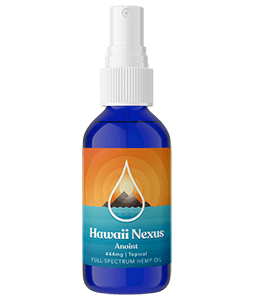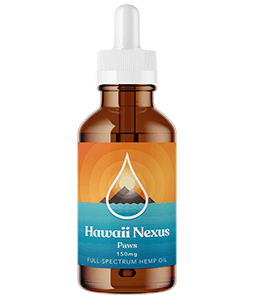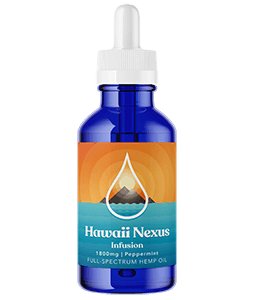How Does CBD Oil Work?
Cannabidiol, also known as CBD, is an all-natural wellness product growing in popularity by the day. Consumers claim the nonintoxicating hemp compound can potentially help with stress, anxiety, mood, sore muscles, and occasional sleeplessness. Even if you’re not new to the botanical extract, you must be wondering, “How does CBD Oil work?”
CBD is a Phytocannabinoid
Phytocannabinoids are plant-based cannabinoids. There are over 500 compounds in hemp, and at least 140 are phytocannabinoids. Many of these phytochemicals share similar benefits, such as the potential to reduce naturally occurring inflammation or lowering stress levels.
Cannabinoids are unique to the hemp plant. They’re only located in the plant’s trichomes, which are small outgrowths that form on the stalk, stems, leaves, and flowers. They also interact fluidly with the endocannabinoid system and cannabinoid receptors.
The Endocannabinoid System
The endocannabinoid system is a complex cell-signaling system found in all mammals that helps maintain balance among the various functions. You don’t have to use hemp products to have an operating ECS. The system is the latest part of the human body discovered, and research shows it plays a massive role in day-to-day tasks.
Scientists confirmed the system in 1992 when anandamide or (AEA) was identified as the first endogenous cannabinoid. The ECS consists of internal or endogenous cannabinoids, cannabinoid receptors, and enzymes. There are two primary and well-researched cannabinoid receptors, cannabinoid receptor type 1 or CB1 and cannabinoid receptor type 2 or CB2.
These receptors are located throughout the body, from the brain to the skin, which is why the potential benefits of hemp compounds are so widespread. The CB1 is primarily found in the central nervous system, liver, lungs, and kidneys. The CB2 is located mainly in immune cells. There are no receptors in the brain stem. The lack of CB1s and CB2s in this area also explains the safety of hemp.
It’s best explained by the National Cancer Institute.
“Because cannabinoid receptors, unlike opioid receptors, are not located in the brainstem areas controlling respiration, lethal overdoses from Cannabis and cannabinoids do not occur.”
When the ECS is functioning at 100%, people are achieving peak wellness.
The Human Body & the ECS
Although the body produces its own endogenous cannabinoids, CBD can add extra support. As mentioned, it can activate the CB 1 or CB 2 when necessary and send messages that may help improve function through balance. Once the endogenous cannabinoid or plant-based cannabinoid completes its communications, it’s broken down in the liver by the endocannabinoid system’s enzymes. Your body then eliminates them naturally through urine or feces.
Possible Benefits of CBD
Some people will tell you the sky’s the limit for the hemp extracts potential advantages. However, CBD isn’t a miracle solution. The information about CBD and the endocannabinoid system shows the future is bright for hemp’s naturally occurring compounds. Research has identified many of the functions CBD may play a role in, such as mood, pain, and immunity.
Much of the benefits of CBD and the other nonintoxicating cannabinoids developed in hemp’s trichomes are related. For example, stress and anxiety have a domino effect throughout the body. When you’re experiencing anxious thoughts, stress levels increase, and more stressors can lead to tensing muscles and painful spasms. To make matters worse, stress, anxiety, and aches and pains can potentially put anyone in a bad mood. Together, quality sleep becomes difficult.
Research shows CBD oil has the potential to reduce anxious thoughts and stress, improving mood, which loosens tense muscles, and helps consumers sleep better at night. For once, you can reverse the negative domino effect with all-natural plant-based options.
CBD may be well-tolerated by most consumers. Unlike prescription treatments and over-the-counter drugs, it only has mild side effects, and many people may experience none. They include sleepiness, nausea, and irritability. CBD may have potential drug-to-drug interactions that can decrease or increase the effectiveness of both. Individuals taking blood thinners should speak with their doctor before starting a daily CBD wellness plan.
CBD Vs. THC
CBD and THC are present in hemp oil. These phytocannabinoids interact naturally with the endocannabinoid system and cannabinoid receptors. They’re the only known compounds to activate the ECS and communicate with the body’s primary functions. How they interact with the ECS may explain the different responses they produce. CBD doesn’t directly attach to the receptors. THC binds tightly to the receptors. This extreme interaction between the phytocannabinoid and cannabinoid receptor might be responsible for the psychoactive effect of THC.
These statements have not been evaluated by the Food and Drug Administration. This product is not intended to diagnose, treat, cure, or prevent any disease.
 Hemp Category
Hemp Category 















